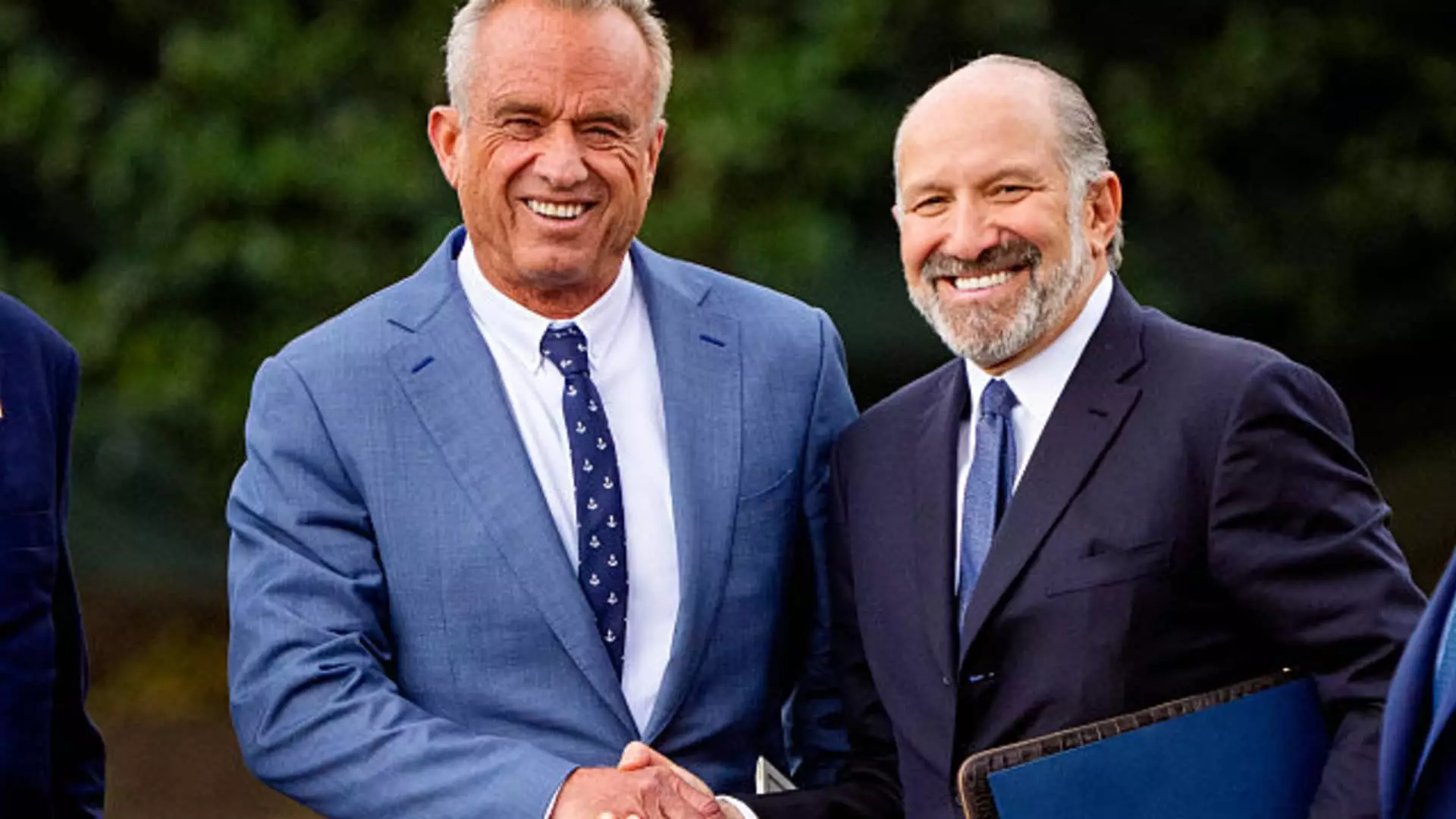The nomination of Robert F. Kennedy Jr. as the Secretary of Health and Human Services (HHS) embodies a paradigm shift that threatens the very foundation of public health. Kennedy, known for his fervent anti-vaccine stance, stands in stark contrast to the scientific consensus that overwhelmingly supports the safety and efficacy of vaccines. His position is not merely an alternative perspective but a concerning trend in the politicization of public health, where personal beliefs overshadow scientific evidence. The ramifications of appointing someone with such controversial views to oversee a critical governmental agency raise immediate red flags. Public health is not merely about choosing one path over another; it is founded on rigorous research, established protocols, and a commitment to the collective well-being of society.
The Resignation That Shook the FDA
The resignation of Peter Marks, head of the FDA’s biologics division, sent shockwaves through the public health community. Marks’ departure underscores the profound disconnect between Kennedy’s anti-vaccine position and the scientific rigor foundational to public health policy. In a realm where lives are on the line, entrusting an outspoken critic of vaccines with regulatory power is not only misguided but perilous. This departure signals more than just discontent; it suggests a deep-rooted fear that HHS could be weaponized to promote misinformation rather than protect the health of the American public. When leadership fails to uphold evidence-based practices, the implications can be dire, as they jeopardize the credibility of critical health institutions that must thrive on trust and transparency.
A Threat to Routine Immunizations
In light of Kennedy’s past statements regarding routine immunizations, there is an alarming potential to derail progress achieved over decades. By minimizing the importance of vaccines, particularly the measles, mumps, and rubella (MMR) vaccine, Kennedy is, whether intentionally or not, amplifying a dangerous narrative that could lead to actual outbreaks—outbreaks that our society has largely come to consider a relic of the past. The Centers for Disease Control and Prevention (CDC) has recommended vaccinations as crucial for public safety, yet Kennedy’s leadership threatens to endorse a culture that fears rather than trusts science. The ability to protect future generations through immunization is not just a health concern but a societal imperative vigorously supported by health experts.
Risky Science vs. Established Protocols
Kennedy has shown a penchant for promoting unproven remedies over scientifically validated options, embodying amateurism in a realm demanding the highest levels of expertise. This disregard for established protocols can lead to devastating consequences and reveals a worrying pattern where ideology triumphs over evidence. Analysts at Cantor Fitzgerald rightfully criticize his lack of appreciation for the complexities inherent in public health decisions. A decision-maker’s belief in the distinction between causality and correlation should never be muddled; the stakes are too high when the health of populations is at risk. America’s health policies should not be held at ransom by someone whose views pivot on conspiratorial thinking rather than factual evidence.
The Fallout Among Biotech Stocks
The implications of Kennedy’s appointment extend beyond the realm of public health and into the financial markets, as evidenced by the sell-off in vaccine manufacturers like Moderna and Novavax following Marks’ resignation. While some may suggest this is merely a financial issue, the reality is that this turmoil reflects a larger context of uncertainty in the biotech sector. Confidence in vaccines should not be undermined by political maneuvering, and any appointments that foster doubt can have wide-reaching implications not only for industry but for global health security as well. It raises an important question: how can we expect innovation in health solutions when the leadership promoting them is tainted by skepticism?
The Narrative of Freedom at What Cost?
Kennedy’s rhetoric, which often underlines personal freedom and choice regarding vaccinations, veers dangerously close to a narrative that can, without careful consideration, lead to preventable deaths—exactly what public health professionals fear. The call for “freedom” must be tempered by a recognition of communal responsibility; personal liberties should not come at the expense of community health. Every act of vaccine hesitancy contributes to the larger burden of disease, reminding us that public health decisions require a nuanced balance between individual rights and societal welfare. We are no strangers to unnecessary morbidity and mortality resulting from vaccine-preventable diseases, and it is imperative to challenge the myth that championing personal freedoms justifies dismantling our collective health safety nets.


Leave a Reply